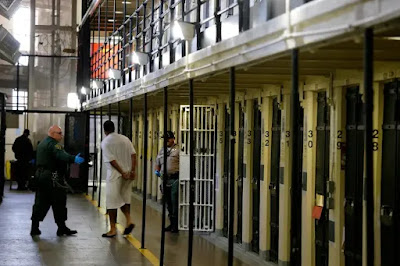When I was a kid, my childhood friends and I often played Monopoly on those long summer days when time stood still in southwestern Oklahoma.
Sometimes our games lasted for two or three days. If a kid went broke by landing on Park Place, the player with the biggest bankroll would provide an interest-free loan to keep the game going.
Why not? It was only Monopoly money.
Now, the United States is playing a grown-up version of Monopoly. Beginning in 2020, the Department of Education allowed student-loan borrowers to skip their monthly payments due to the COVID pandemic.
The original pause ended in September 2020 but has been extended eight times.
In the meantime, President Biden launched his student-loan forgiveness plan to give millions of student debtors $10,000 a piece in student-loan forgiveness.
Biden's plan was challenged in the courts, and the President used this ongoing litigation as an excuse to continue the pause on student-loan payments.
"It isn't fair to ask tens of millions of borrowers eligible for relief to resume their student debt payments while the courts consider the lawsuit," the President said.
Thus the moratorium on student-loan payments will extend until August 2023 unless the Supreme Court rules on his loan-forgiveness plan by the end of June.
Due to the payment pause, it seems likely that 40 million student debtors will go more than three years without making a single loan payment. During this moratorium, student loans do not accrue interest, and DOE does not assess penalties for non-payment.
Even better, borrowers in DOE's various income-based repayment programs can count the time their loan payments are paused toward their fixed-term payment obligations. For example, an individual in DOE's ten-year Public Service Loan Forgiveness program (PSLF) who skips loan payments for three years will only be required to make income-based payments for seven years. Sweet!
How much is the loan-payment pause costing taxpayers? According to the Wall Street Journal, the government will have lost $155 billion in uncollected interest by next month. By extending the break until August 2023, the delay will cost taxpayers an additional $40 billion.
So what? It's only Monopoly money. If the federal government runs out of cash, it can always print or borrow more.
Ultimately, I predict, the U.S. Supreme Court will declare President Biden's student-loan forgiveness program unlawful. The Bident administration asked the Supreme Court to fast-track the case, but I don't think the Court will agree. It will probably be 2024 before the litigation is resolved.
As the loan-forgiveness litigation winds its weary way through the federal courts, Biden will certainly keep extending the loan-payment pause--probably to the end of his administration.
There will likely be two dire consequences if 40 million Americans are allowed skip making student-loan payments for four years.
First, student borrowers will conclude that they will never have to pay back their loans and will be damned angry if the government forces them to resume writing loan-payment checks after four years.
Second, after allowing student debtors to skip making loan payments for several years, DOE won't be able to get the student-loan program back on track. It will become like a car that sits idle in a barn all winter. When spring arrives, the car won't start.
Meanwhile, colleges and universities continue raising their tuition prices, and students are taking out more federal loans.
To quote from an old adage, if something can't last forever, it won't. DOE's Rube-Goldbergian student-loan program will eventually collapse--perhaps sooner than anyone thinks.
 |
| Hey, it's only Monopoly money. |


